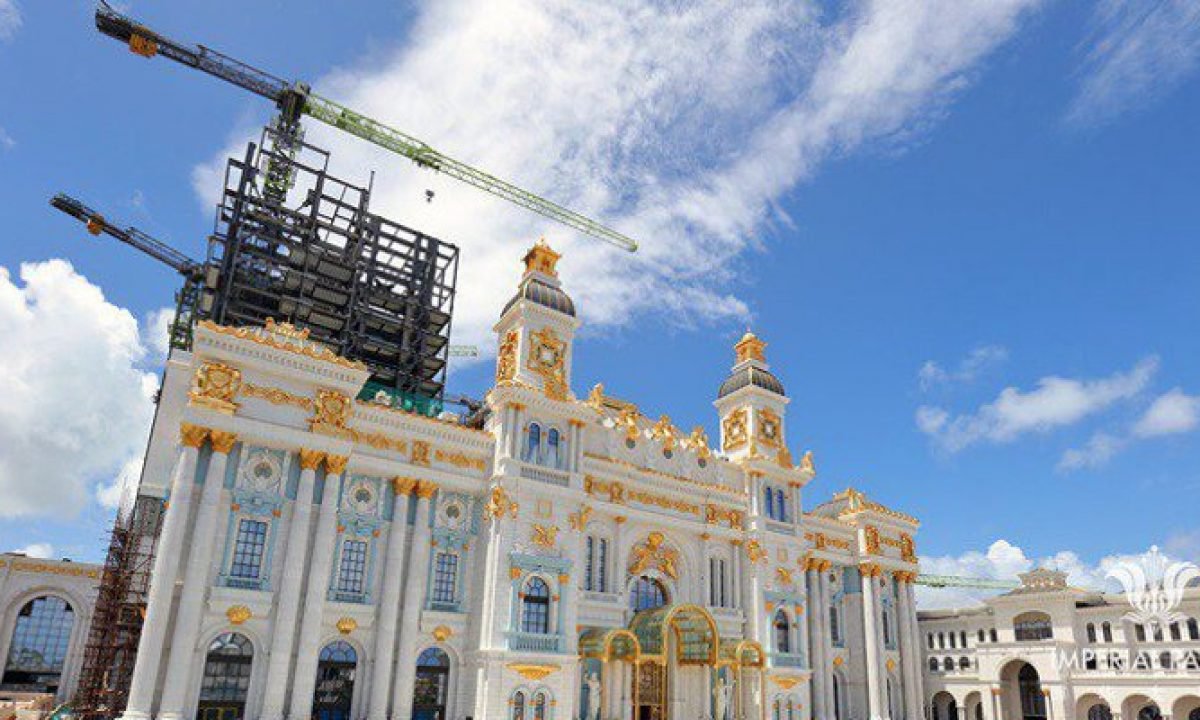Posted on: June 24, 2022, 05:28h.
Last updated on: June 24, 2022, 10:34h.
There’s still no guarantee that Imperial Pacific International (IPI) will be able to retain its casino license for the Imperial Palace casino in Saipan. However, if it does, it won’t have complete control over the property’s hotel.

In a filing with the Hong Kong Stock Exchange yesterday, IPI announced that it is negotiating an underwriting deal with Sino Travel Samoa Limited. The company is incorporated in Samoa and provides travel-related services, including “planning and selling transportations (sic), accommodations, insurance and other travel services covering Hong Kong, the PRC (People’s Republic of China), India, and Samoa.”
Sino will be responsible for leasing 250 hotel rooms and 15 villas at Imperial Palace. It will also have to recruit or outsource a management team to run Imperial Palace’s hotel “in a manner of a 6-star hotel.” What this entails is not entirely clear, as according to Escape.com, the six-star rating “doesn’t officially exist.”
IPI believes the arrangement will help it begin to put revenue into its pockets as it tries to convince the Commonwealth Casino Commission (CCC) that it’s worthy. It has a lot of work ahead, as it still owes tens of millions of dollars in taxes, fees, and obligatory contributions to the government. It also owes more to private contractors it never paid.
Lofty Expectations
The agreement will be in place for four years and will be worth gross rental income of at least $104.39 million a year. Sino will cover that through monthly payments to IPI.
However, the embattled casino operator, whose own parent company already suggested it give up on the Imperial Palace, glosses over a couple of key elements. Taking this into consideration, the arrangement isn’t as solid as IPI would have everyone believe.
First, IPI won’t begin to receive any money right away. The agreement stipulates that the term begins after the operator “obtains all necessary licenses and approvals from Saipan’s authorities in relation to the operation of Imperial Palace.” Because the CCC suspended its license, IPI can’t set the plan with Sino in motion.
Additionally, IPI based the revenue the deal will generate on figures that appear to be exaggeratedly unrealistic and untenable. For example, the design of Imperial Palace initially included at least 329 hotel rooms and 15 villas, according to IPI data. However, not all accommodations are ready, even if the property were open to the public.
IPI’s deal with Sino calculates the total value using an average rate of $1,000 per hotel room per day, and $2,400 per villa per day. The villa figure is within the realm of possibility. However, finding enough customers to cover 250 hotel rooms at $1,000 per day for an entire year is impossible.
Therefore, Sino is either willing to lose tens of millions of dollars, or there’s something else going on inside the agreement. Either way, it’s an arrangement regulators will watch closely.
Imperial Palace Outsources Shopping Mall
Separate from the Sino deal, IPI announced that it had signed an agreement with Jiadingsheng Supply Chain Management Co Ltd. This will lead to the creation of a joint venture to manage a shopping mall at Imperial Palace. Provided IPI receives its license, the “Exclusive Cooperation Arrangement” (ECA) will allow the shopping center to open as of October 20 of this year.
The mall will span approximately 1,000 square meters (10,763 square feet) on the ground floor of Imperial Palace. IPI said that it will receive “guaranteed” annual revenue of $38.5 million. In addition, it will earn a net profit of $2.6 million after four years of operation.
IPI and China-based Jiadingsheng are splitting the JV in favor of the casino operator. It will hold 51% of the business, while its partner controls 49%. That same split will apply to the sharing of net profits.
In its filing, IPI asserts that the underwriting agreement and the ECA are important. They allow it to show the CCC that it is making progress in generating income. However, as it points out, neither agreement is legal and binding until the company receives its license. As such, it still has not shown additional resources to pay down its current astronomical debt.
